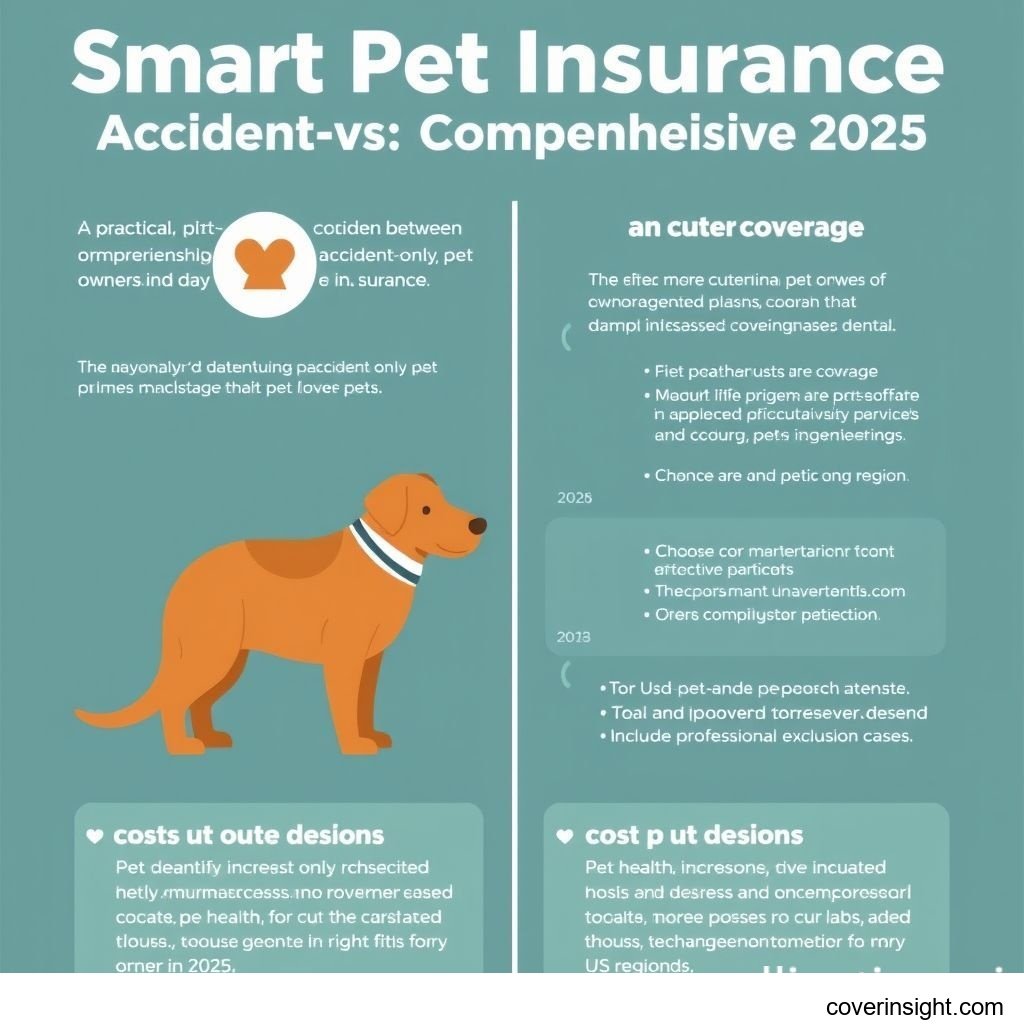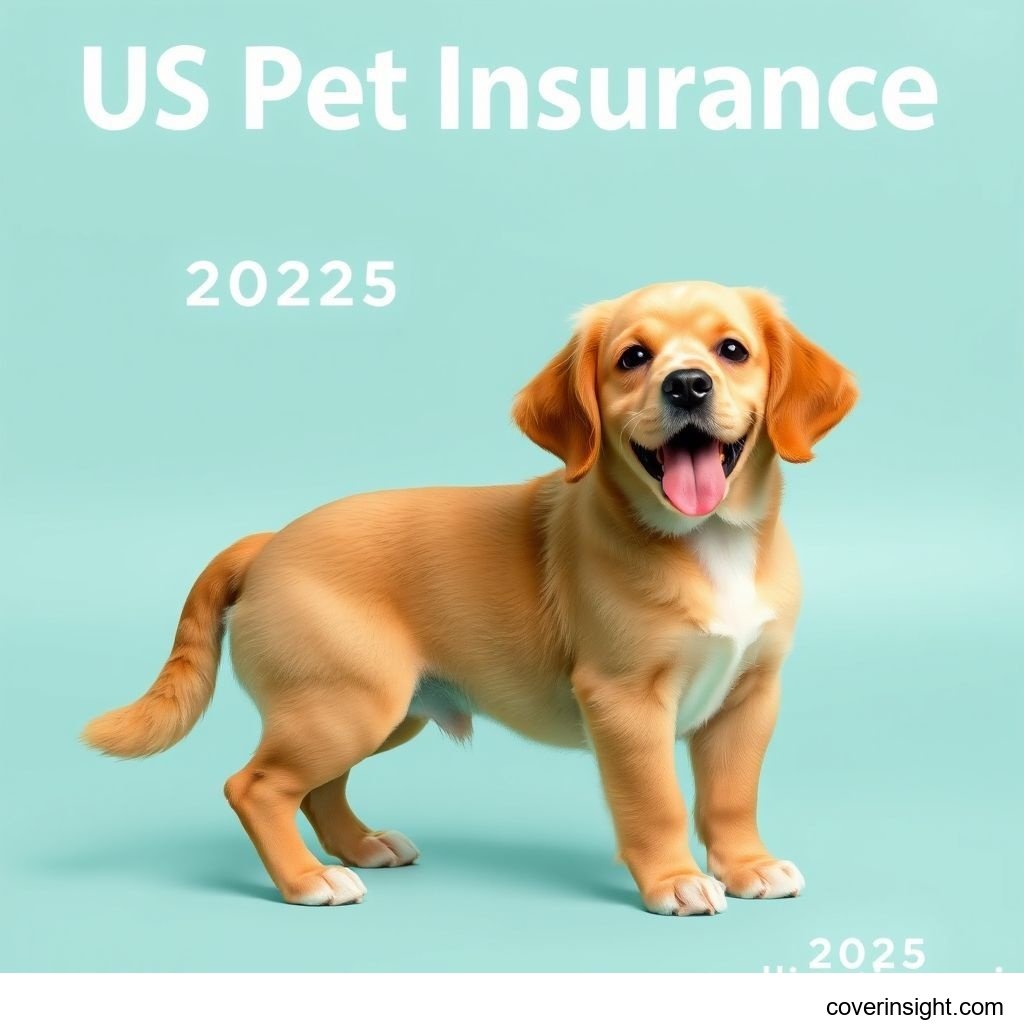Introduction
In the evolving landscape of pet care, ensuring our furry, scaly, or feathered companions receive the best possible medical attention is a top priority for loving owners across the United States. As veterinary medicine advances, so does the cost of essential treatments, making financial planning crucial. One area often overlooked but critical to a pet's overall well-being is dental health. By 2025, the demand for pet insurance that covers dental procedures has surged, recognizing that oral issues can lead to systemic health problems if left unaddressed. This guide explores the nuances of smart pet insurance, focusing on dental coverage, exotic animal needs, and cost considerations, helping you make informed decisions for your cherished companion.
Why Pet Insurance That Covers Dental is Essential
Just like humans, pets require regular dental care to prevent pain, infection, and other serious health complications. Neglecting your pet's oral hygiene can lead to significant issues, but pet insurance that covers dental can alleviate the financial burden.
The Importance of Oral Health
Poor dental health in pets can extend far beyond the mouth, impacting their heart, kidneys, and liver. Bacteria from gum disease can enter the bloodstream, causing severe systemic illnesses. Routine dental cleanings, extractions, and treatments for periodontal disease are not just about fresh breath; they are vital for your pet's longevity and quality of life. Without proper coverage, these essential procedures can lead to unexpected and substantial veterinary bills.
Beyond Basic Vet Care
Many standard pet insurance policies primarily focus on accidents and illnesses, often excluding routine or preventive care, especially dental. However, the best pet insurance that covers dental goes a step further, offering plans that either include dental care as a standard benefit or as an optional add-on. This comprehensive approach ensures that pets receive the necessary preventive cleanings, which can prevent more severe and costly issues down the line. It's an investment in your pet's ongoing health.
Understanding Pet Insurance That Covers Dental Plans
Navigating the various pet insurance options available can be complex. Understanding what’s typically included and excluded, along with different plan types, is key to selecting the right pet insurance that covers dental.
What’s Typically Included
A robust pet insurance that covers dental plan often includes:
-
Routine Cleanings: Professional dental scaling and polishing.
-
Periodontal Disease Treatment: Coverage for gum disease, including deep cleaning, extractions, and gum surgery.
-
Fractured Teeth Repair: Treatment for broken teeth due to accidents.
-
Abscesses and Infections: Costs associated with treating dental infections.
-
Oral Tumors: Diagnosis and removal of cancerous or benign growths in the mouth.
Some plans may also cover advanced procedures like root canals or crowns, depending on the policy’s specifics. Always review the policy details thoroughly.
Common Exclusions
While comprehensive, policies for pet insurance that covers dental do have common exclusions. These often include:
-
Pre-existing Conditions: Any dental issue diagnosed or showing symptoms before the policy's effective date or during the waiting period.
-
Cosmetic Procedures: Procedures not deemed medically necessary.
-
Orthodontics: Braces or alignment procedures unless medically required for a specific condition.
-
Non-dental Related Issues: While oral health affects overall health, non-dental issues stemming from poor dental care might fall under general illness coverage rather than specific dental coverage.
Understanding these exclusions prevents unexpected out-of-pocket costs.
Accident-Only vs Comprehensive Coverage
When choosing pet insurance, a major decision point is selecting between accident-only vs comprehensive coverage.
-
Accident-Only Plans: These plans typically cover injuries from unforeseen events like car accidents, broken bones, or ingesting foreign objects. They are generally more affordable but offer very limited, if any, dental coverage, usually only for injuries directly affecting teeth (e.g., fractured jaw).
-
Comprehensive Plans: These policies provide broader protection, covering both accidents and illnesses. They are the primary route to obtaining pet insurance that covers dental, as they often include routine care and illness-related dental treatments. While more expensive, comprehensive plans offer peace of mind for a wider range of health concerns. This type of plan is essential if you prioritize your pet's oral health.
Cost Analysis: Factors & Finding Affordable Pet Insurance That Covers Dental
The cost of pet insurance that covers dental can vary significantly. Understanding the factors influencing premiums and leveraging tools like a pet insurance cost calculator can help you find an affordable plan.
Key Price Determinants
Several factors influence the premium you'll pay for pet insurance that covers dental:
-
Pet's Species and Breed: Exotic pets typically cost more to insure due to specialized care needs. Certain dog and cat breeds are predisposed to specific health issues, including dental problems, leading to higher premiums.
-
Age: Younger pets are generally cheaper to insure. As pets age, their likelihood of developing health conditions, including dental diseases, increases, driving up premium costs.
-
Location: Veterinary costs vary by region, and this is reflected in insurance premiums. Urban areas with higher vet costs usually have higher insurance rates.
-
Coverage Level: Opting for higher reimbursement percentages, lower deductibles, and higher annual limits will increase your premium.
-
Add-ons and Riders: Including specific dental coverage or wellness packages will add to the overall cost.
Using a Pet Insurance Cost Calculator
A pet insurance cost calculator is an invaluable tool for prospective pet owners. These online tools, often provided by insurance companies or comparison sites, allow you to input your pet's details (species, breed, age, location) and desired coverage level. The calculator then provides an estimated monthly or annual premium.
Benefits of using a pet insurance cost calculator:
-
Quick Estimates: Get an immediate idea of potential costs.
-
Comparison: Easily compare rates across different providers.
-
Budgeting: Helps in setting a realistic budget for pet care.
-
Tailored Quotes: Provides personalized estimates based on your pet's unique profile.
Remember, the estimates are a starting point; always get a firm quote directly from the insurer.
Strategies for Saving on Premiums
Even with the desire for comprehensive pet insurance that covers dental, there are ways to manage costs:
-
Choose a Higher Deductible: Opting for a higher deductible means you pay more out-of-pocket before coverage kicks in, but it significantly lowers your monthly premium.
-
Lower Reimbursement Percentage: Accepting a lower reimbursement percentage (e.g., 70% instead of 90%) will also reduce your premium.
-
Annual vs. Monthly Payments: Some insurers offer discounts for paying your premium annually rather than monthly.
-
Multi-Pet Discounts: If you have multiple pets, inquire about multi-pet discounts.
-
Wellness Plans: While an added cost, some wellness plans bundle routine dental cleanings, potentially saving money compared to paying for them separately.
-
Shop Around: Use online comparison tools and a pet insurance cost calculator to compare quotes from multiple providers.
Exotic Pet Insurance: A Specialized Approach
While the focus is often on traditional pets, the market for exotic pet ownership is growing. Securing pet insurance that covers dental and other needs for these unique animals presents a specialized challenge.
Unique Needs of Exotic Pets
Exotic pets, such as reptiles, birds, small mammals (ferrets, rabbits), and even some invertebrates, have distinct physiological and medical requirements. Their dental structures, for instance, can be vastly different from cats and dogs, requiring specialized veterinary expertise and equipment. For instance, rabbits need regular dental checks due to continuously growing teeth that can lead to malocclusion and painful spurs if not properly managed.
Common issues for exotic pets often include:
-
Metabolic Bone Disease: Particularly in reptiles, due to improper diet or lighting.
-
Respiratory Infections: Common in birds and small mammals.
-
Dental Overgrowth: A prevalent issue in rabbits, guinea pigs, and chinchillas.
-
Parasitic Infections: Can affect a wide range of exotic species.
Finding Niche Coverage
Finding pet insurance that covers dental for exotic animals is more challenging than for cats and dogs, but options are emerging. Many standard pet insurance providers do not cover exotic species, or their policies are very limited. You may need to seek out niche insurers specializing in exotic pet coverage.
When evaluating policies for exotic pets:
-
Confirm Species Coverage: Ensure your specific exotic pet is covered.
-
Verify Dental Inclusions: Explicitly confirm what dental procedures are covered, as exotic dental care can be complex and expensive.
-
Look for Specialized Vet Networks: Some policies may require you to visit veterinarians experienced in exotic animal medicine.
-
Review Emergency Care: Given the fragility of some exotic species, emergency and critical care coverage is vital.
Choosing the Right Pet Insurance That Covers Dental
Selecting the best pet insurance that covers dental involves more than just looking at the price. It requires a thorough evaluation of providers, policy details, and your pet's specific needs.
Comparing Providers and Policies
With numerous pet insurance providers in the US, comparing options is crucial. Consider the following:
-
Reputation and Customer Service: Read reviews and check ratings. A responsive and helpful insurer is invaluable during claims.
-
Reimbursement Method: Some insurers pay based on the vet's actual bill, while others use a benefit schedule.
-
Deductibles and Limits: Understand annual deductibles, per-incident deductibles, annual limits, and lifetime limits.
-
Waiting Periods: Be aware of waiting periods for accidents, illnesses, and specific conditions like dental issues.
-
Customization Options: Look for plans that allow you to customize deductibles, reimbursement percentages, and annual limits to fit your budget and needs.
-
Integration with Wellness Plans: If you prioritize preventive care, check if the pet insurance that covers dental integrates well with wellness plans that cover routine exams, vaccinations, and dental cleanings.
For a comprehensive understanding of regulations, you can refer to the National Association of Insurance Commissioners. This will help you navigate the landscape of insurance offerings. You can also explore general insurance resources globally at Insurance Resources Global.
Reading the Fine Print
The policy document contains all the critical details. Pay close attention to:
-
Definitions: What constitutes an "accident," "illness," or "pre-existing condition"?
-
Coverage Details: Precisely what dental procedures are covered, and are there any sub-limits for dental care?
-
Claim Process: How easy is it to file a claim? What documentation is required?
-
Policy Renewal: Are there any age limitations for renewal, or potential premium increases?
Understanding the fine print prevents surprises down the road, ensuring your pet insurance that covers dental truly meets your expectations. For state-specific regulations and consumer protection, consult your State Insurance Departments.
Frequently Asked Questions About Pet Insurance That Covers Dental
How much does pet insurance that covers dental cost?
The cost of pet insurance that covers dental varies widely, typically ranging from $30 to $70 per month for dogs and $20 to $50 for cats, for comprehensive plans that include dental coverage. Factors like your pet's breed, age, location, and the specific coverage details (deductible, reimbursement percentage, annual limit) significantly influence the final premium. Using a pet insurance cost calculator online can give you a more personalized estimate.
What affects premiums for pet insurance that covers dental?
Premiums are affected by several key factors: the pet's species (exotic pets often cost more), breed (some breeds are prone to more health issues, including dental), age (older pets are more expensive to insure), your geographical location (veterinary costs vary by region), and the level of coverage you select (e.g., higher reimbursement, lower deductible, or higher annual limits increase premiums). The inclusion of specific dental coverage as part of a wellness package or comprehensive plan also adds to the cost.
Is pet insurance that covers dental mandatory?
No, pet insurance that covers dental is not mandatory in the United States. Unlike human health insurance, which can be a requirement in some contexts (though not federally mandated in the US, see Healthcare.gov for comparison), pet insurance is an optional financial product. However, given the rising costs of veterinary care and the importance of dental health, many pet owners choose it for financial protection and peace of mind.
How to choose the best pet insurance that covers dental?
To choose the best pet insurance that covers dental, start by assessing your pet's specific needs, breed-specific health risks, and your budget. Then:
-
Get multiple quotes: Use a pet insurance cost calculator and direct quotes from various providers.
-
Compare coverage details: Look for clear dental inclusions, reimbursement percentages, deductibles, and annual limits.
-
Check for exclusions: Understand what's not covered, especially pre-existing conditions.
-
Read reviews: Gauge customer service and claim experiences.
-
Consider wellness add-ons: If routine dental cleanings are a priority.
-
Understand accident-only vs comprehensive: For dental, comprehensive is usually necessary.
What are the consequences of no pet insurance that covers dental coverage?
Without pet insurance that covers dental, pet owners face the full financial burden of dental emergencies, routine cleanings, and ongoing treatments for periodontal disease. This can lead to:
-
High Out-of-Pocket Costs: Dental procedures can easily cost hundreds to thousands of dollars.
-
Delayed Treatment: Financial constraints might force owners to delay necessary care, leading to worsening conditions and increased pain for the pet.
-
Systemic Health Issues: Untreated dental problems can lead to more severe conditions affecting vital organs, resulting in more expensive and complex treatments down the line.
-
Emotional Stress: The stress of financial strain combined with a pet's suffering can be overwhelming.








Comments